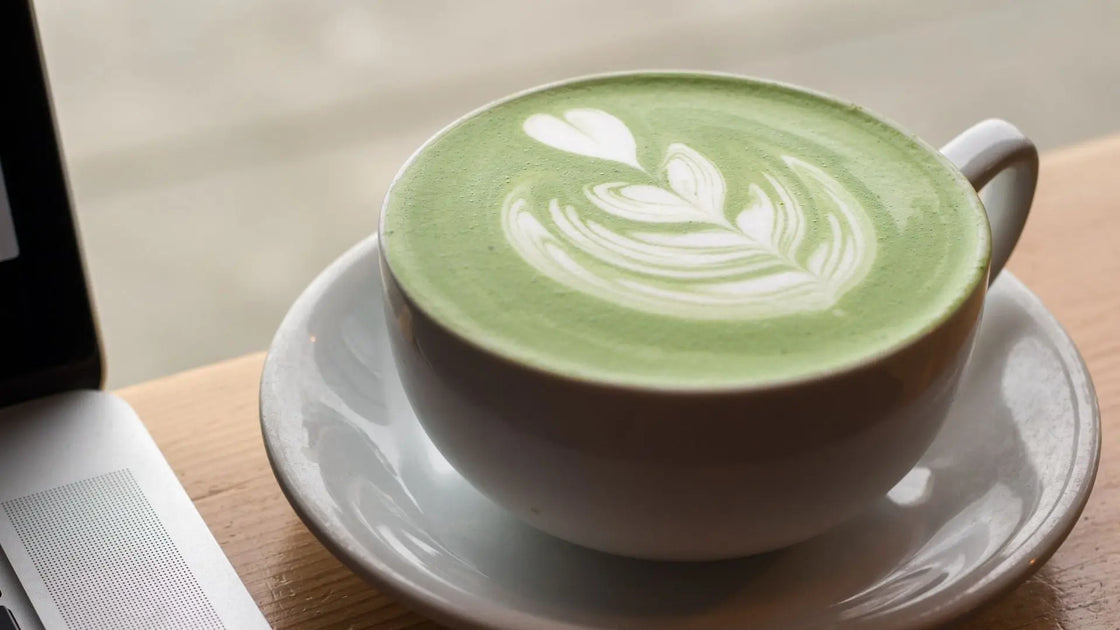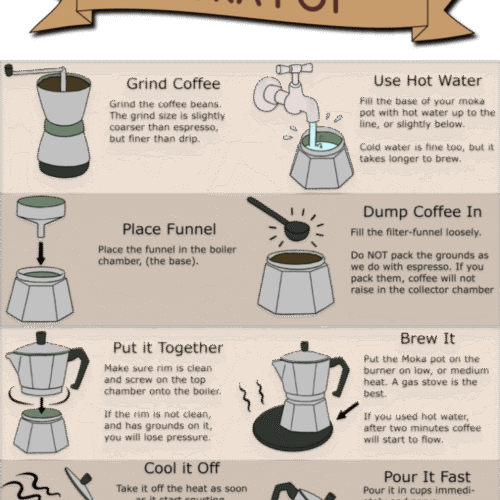Matcha and coffee have different benefits and it comes down to personal preferences. Matcha, a type of green tea, is known for its high antioxidant content and potential health benefits.
It also provides a more sustained energy boost compared to coffee, without the jitters or crash. On the other hand, coffee is appreciated for its bold flavor and ability to provide a quick energy boost. While both have their own advantages, choosing between matcha and coffee ultimately depends on individual taste preference, health considerations, and desired effects.
We will explore the potential benefits and drawbacks of matcha and coffee, helping you make an informed decision based on your needs and preferences.
Matcha Vs Coffee Health Showdown
When it comes to the matcha vs coffee health showdown, both beverages have loyal followings and unique health benefits. Let’s delve into a detailed comparison of the key nutritional components, caffeine levels, antioxidants, and their impact on metabolism and weight loss.
Key Nutritional Components Of Matcha And Coffee
Matcha, a finely ground powder of specially grown and processed green tea leaves, is rich in potent antioxidants and chlorophyll. Additionally, it is a good source of fiber, vitamin C, selenium, chromium, and zinc. On the other hand, coffee contains riboflavin, pantothenic acid, manganese, potassium, and modest amounts of niacin and choline.
Caffeine Levels And How They Influence The Body
The caffeine content in matcha and coffee varies significantly. Matcha contains about 25-35mg of caffeine per gram, providing a milder and more sustained energy boost. On the other hand, coffee contains a much higher caffeine content, ranging from 95-165mg per 8 oz cup, which may lead to a more intense, short-lived energy spike.
Antioxidants In Matcha And Coffee And Their Benefits
Matcha is renowned for its potent antioxidant content, particularly epigallocatechin gallate (EGCG), which is linked to various health benefits, such as reducing inflammation, supporting heart health, and enhancing brain function. Coffee also contains antioxidants, including chlorogenic acid and caffeic acid, contributing to its potential protective effects on liver health and reduction in oxidative stress.
Effects On Metabolism And Weight Loss
The combination of antioxidants and specific compounds in matcha has been shown to potentially enhance fat oxidation and boost metabolism. Although coffee has shown similar effects on metabolism due to its caffeine content, the overall impact may differ based on individual tolerance and consumption habits.

Credit: richingmatcha.com
Matcha’s Rise In Popularity
Matcha’s rise in popularity as a beverage choice has been remarkable in recent years. Its rich cultural heritage as a traditional Japanese ceremonial tea combined with its numerous health benefits have contributed to its growing appeal around the world.
Growing Trend Of Matcha As A Health Drink
One major driver behind the surge in matcha’s popularity is its reputation as a superfood packed with antioxidants and nutritional benefits. As the wellness movement gains momentum, more people are turning to matcha as a healthier alternative to coffee and other caffeinated beverages.
Comparison Of Matcha Adoption Rates To Coffee
When comparing the adoption rates of matcha to coffee, it’s clear that matcha’s popularity is on the rise. With increasing concerns about the potential negative health effects of excessive coffee consumption, many are seeking out matcha as a sustainable and healthier source of caffeine.
Examining Energy And Focus
When it comes to the daily battle between matcha and coffee, one of the key factors to consider is their impact on energy and focus. Let’s delve into how each one affects our ability to stay alert and focused throughout the day.
How Matcha Provides Sustained Energy Versus Coffee’s Quick Jolt
Matcha is renowned for its ability to provide sustained energy without the jarring crash associated with coffee. This is due to the presence of L-theanine, an amino acid that works in synergy with caffeine to release a steady stream of energy over time, fostering a sense of alertness without the sudden spikes and crashes.
Coffee, on the other hand, delivers a powerful jolt of energy due to its high caffeine content. While this quick burst of energy can be beneficial, it often leads to a subsequent energy crash, leaving individuals feeling fatigued and depleted. The rapid rise and fall of energy levels associated with coffee consumption can have a disruptive effect on productivity and focus.
Impact On Focus And Mental Clarity From Matcha And Coffee
Matcha is revered for its ability to enhance focus and mental clarity. The combination of caffeine and L-theanine promotes a state of relaxed alertness, which can lead to improved concentration, cognitive function, and overall mental acuity.
Coffee is known for its immediate impact on focus, providing a quick surge in alertness. However, the rapid metabolism of caffeine in coffee can lead to a lack of sustained focus and mental clarity, often resulting in jitteriness and an inability to maintain concentration over an extended period.
Side Effects And Health Impacts
When considering the side effects and health impacts of matcha and coffee, it’s essential to delve into the digestive differences, acidity levels, and long-term health considerations associated with these popular beverages.
Digestive Differences Between Matcha And Coffee
Matcha and coffee have distinct effects on digestion due to their caffeine content. While coffee may cause stomach irritation and acid reflux in some individuals, matcha’s unique blend of catechins and amino acids can provide a gentler energy boost without the jitters or digestive discomfort.
Analyzing The Acidity Levels In Matcha And Coffee
Acidity levels can significantly influence the impact of beverages on health. Matcha, with its alkalizing properties, can help balance the body’s pH levels, reducing the risk of acid-related issues. On the other hand, coffee’s acidity may trigger acid reflux and contribute to dental erosion over time.
Long-term Health Considerations And Disease Prevention
When it comes to long-term health, matcha offers an array of antioxidants, notably EGCG, that contribute to disease prevention and overall well-being. In contrast, excessive coffee consumption has been linked to potential negative effects on heart health, sleep patterns, and anxiety levels.
Is Matcha Better Than Coffee For Daily Consumption?
When it comes to daily consumption, the debate between Matcha and Coffee has sparked a lot of interest among health enthusiasts and caffeine aficionados. Both beverages offer unique benefits and drawbacks, making it essential to balance their pros and cons for everyday health. Understanding their impact on lifestyle and individual health goals can help individuals make conscious choices. Let’s explore the comparison and examine how to incorporate Matcha or Coffee into your routine for optimal health benefits.
Balancing The Pros And Cons For Everyday Health
Matcha and Coffee both contain caffeine, which can provide an energy boost and improve mental alertness. However, Matcha offers a sustained release of energy without the jitters and crash often associated with Coffee consumption. While Coffee can lead to increased anxiety and restlessness in some individuals, Matcha promotes a sense of calmness and relaxation, thanks to the presence of L-Theanine. Moreover, Matcha is packed with antioxidants and vital nutrients, making it a more wholesome option compared to Coffee.
Lifestyle And Individual Health Goals In Choosing Between Matcha And Coffee
- Matcha: Ideal for individuals seeking a calmer energy boost, enhanced focus, and a steady release of caffeine without the side effects of Coffee.
- Coffee: Suited for those who prefer a quick but intense energy surge or want to indulge in the rich aroma and taste of a traditional hot beverage.
How To Incorporate Matcha Or Coffee Into Your Routine For Optimal Health Benefits
- Morning Ritual: Replace your morning cup of Coffee with a soothing cup of Matcha for a refreshing and sustained energy lift throughout the day.
- Afternoon Slump: If you struggle with the afternoon energy crash, consider switching to Matcha to combat fatigue and maintain mental clarity.
- During Workouts: Incorporate Matcha into your pre-workout routine for enhanced endurance and focus, or enjoy a post-workout Coffee to aid in muscle recovery and replenish glycogen levels.
Frequently Asked Questions Of Is Matcha Better Than Coffee
Is Matcha Healthier Than Coffee?
Matcha contains antioxidants and provides sustained energy without the crash associated with coffee. It also boosts metabolism and helps in concentration.
How Does Matcha Compare To Coffee In Caffeine Content?
Matcha contains less caffeine than coffee, providing a more gradual release of energy. This can help prevent jitters and crashes associated with coffee.
Can Matcha Be A Good Alternative To Coffee?
Yes, matcha can be a great alternative to coffee. It provides a smooth energy boost without the jitters, and also offers health benefits such as antioxidants and improved concentration.
What Are The Health Benefits Of Matcha Over Coffee?
Matcha provides a rich source of antioxidants, boosts metabolism, and enhances calm focus, without the caffeine crash often associated with coffee.
Conclusion
Both matcha and coffee offer unique benefits. Ultimately, the choice between the two comes down to personal preference and individual health needs. Whether you opt for the earthy taste of matcha or the bold flavor of coffee, both can be enjoyed as part of a balanced lifestyle.








